
By Massimiliano Sfregola
Orthodox Easter, the highlight of the liturgical year for the Greek Orthodox world, holds an even greater significance in Cyprus than in neighboring Greece. Holy Week has for Cypriots the same emotional intensity that Christmas holds for Catholics, blending moments of religious reflection with convivial gatherings that have remained largely unchanged over time.
This year was a bit special, Orthodox and Catholic Easter happened to fall on the same day, so Christian communities across Cyprus marked the holiday together. As always, the Greek Orthodox Church held a mix of events all over the island, from quiet village services and traditional hymns to family feasts and lively gatherings.
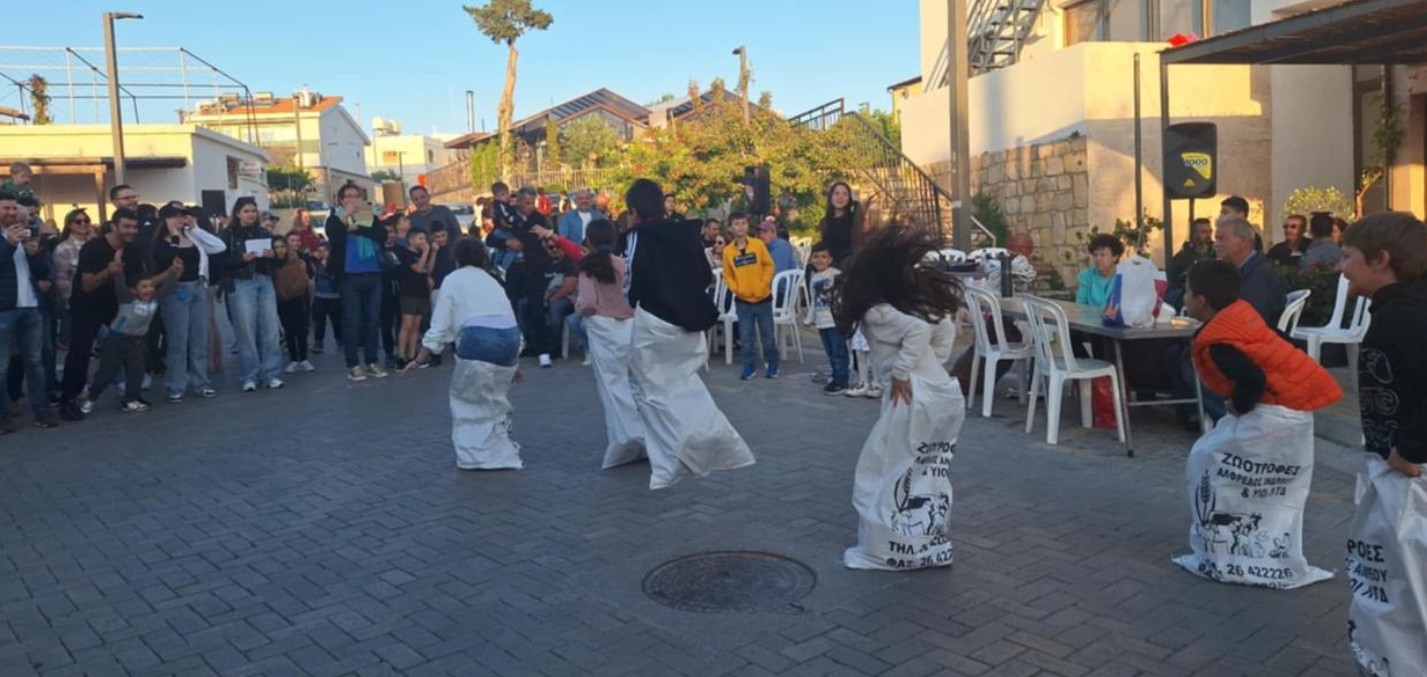 Pano Arodes, Paphos
Pano Arodes, Paphos
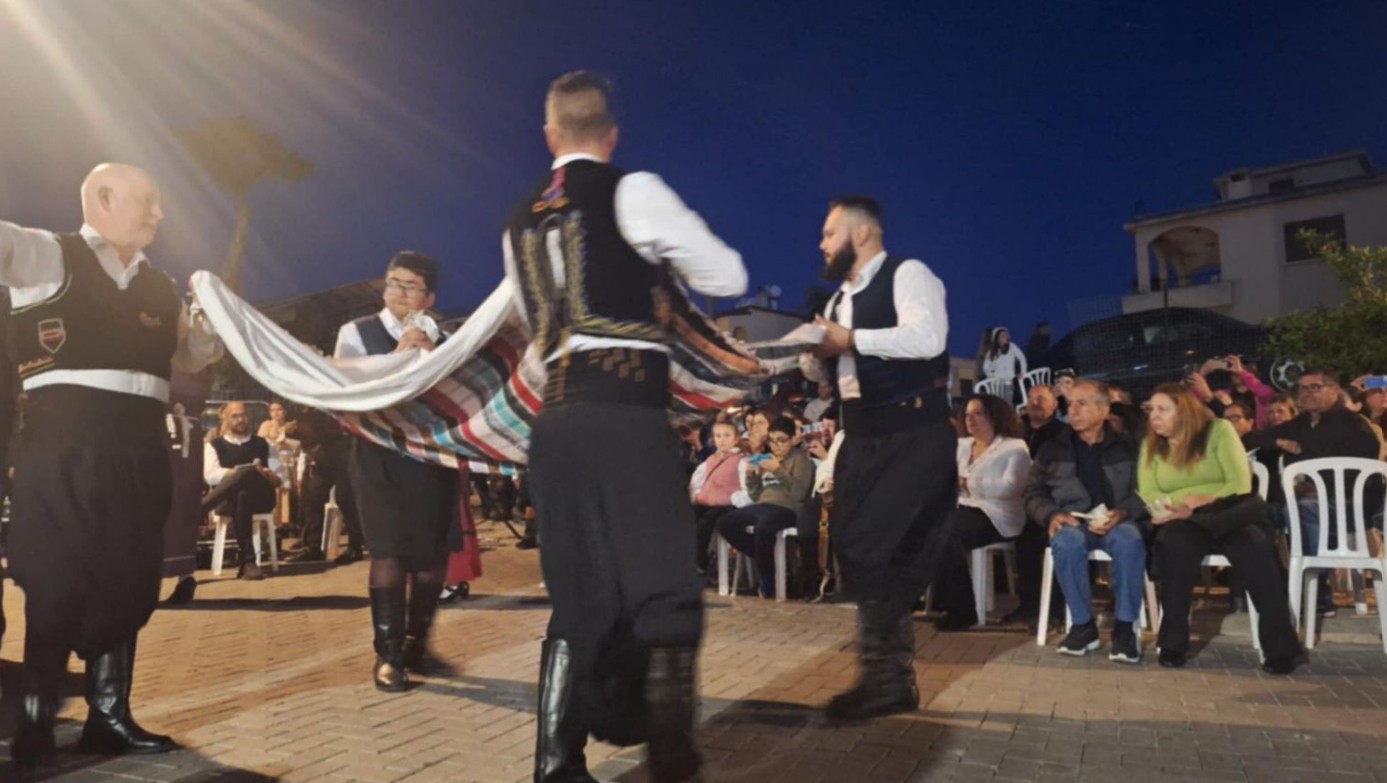 Konia, Paphos
Konia, Paphos
But the real highlight came late on Holy Saturday night, during the midnight church service. That’s when the resurrection of Christ is announced and the church fills with candlelight, not just any candlelight, but the Holy Light flown in from Jerusalem.
Every year, just before midnight, something extraordinary happens at the Church of the Holy Sepulchre in Jerusalem, where many believe Jesus was buried. A flame is said to appear miraculously inside the tomb, no matches, no lighters, and the Greek Orthodox Patriarch uses it to light a candle. From there, it spreads to thousands of worshippers and is quickly flown to different Orthodox countries, including Cyprus.
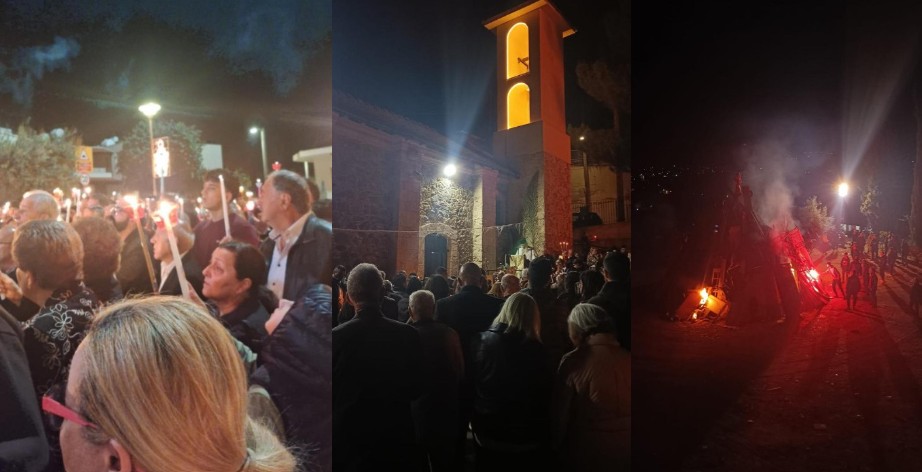 Easter celebrations at churches in Konia and Tembria, Paphos District and Lambratzia in Lakatamia, Nicosia District. Photos by Costanza Mutti
Easter celebrations at churches in Konia and Tembria, Paphos District and Lambratzia in Lakatamia, Nicosia District. Photos by Costanza Mutti
Officials often greet the flame at the airport before it's passed from church to church, reaching people across the island who use it to light their Easter candles. For many, it’s the most moving moment of the year, a powerful symbol of light beating darkness.
It’s this moment that kicks off the midnight celebration: the church erupts with joy, fireworks go off, and the 'lambratzies', the big Easter bonfires, are lit, bringing people together in both faith and festivity. It’s loud, bright, and deeply meaningful all at once, just the way Easter in Cyprus has always been.
On Holy Thursday, families dye eggs red to represent the blood of Christ. Good Friday follows with the solemn Epitaphios procession, a symbolic funeral held in near silence, as the flower-covered "tomb" of Jesus is carried through village streets to the sound of liturgical hymns. But it’s Saturday night that captures the true spirit of Easter: churches across the island fill with worshippers, and at the joyous cry of “Christ is risen,” the darkness is swept away by a wave of candlelight. It’s the most anticipated moment, where faith becomes a shared, powerful experience. Compared to Greece, some Easter traditions in Cyprus are expressed with even greater flair and dramatic intensity.
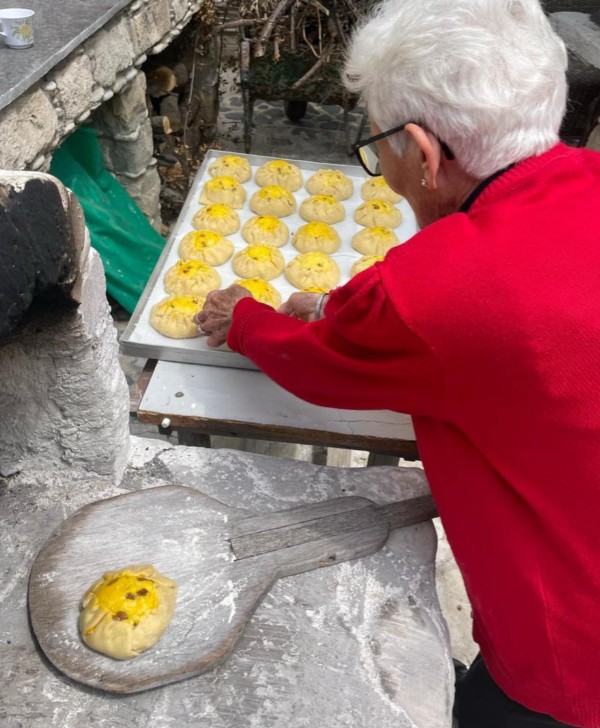 Agios Theodoros, Larnaka District
Agios Theodoros, Larnaka District
The lampratzies are enormous bonfires built by local youth who gather wood for weeks. They are lit just after midnight on Easter as a ritual of purification and celebration of light. But it is not just a celebration: heated debate has long surrounded this tradition between those calling for restrictions or bans and those defending it as part of local identity.
Unfortunately, this year, a tragic accident that claimed the life of a teenager reignited the controversy: every year, injuries and significant property damage are reported due to accidental fires. The following day, families come together for the grand Easter barbecue, featuring spit-roasted lamb, traditional bread, and the iconic flaounes—savory pastries filled with cheese and aromatic herbs. One tradition that often surprises visitors is the use of red eggs, not just as decoration but for a symbolic game: people knock their eggs against one another, and whoever ends up with an uncracked egg is said to be lucky.
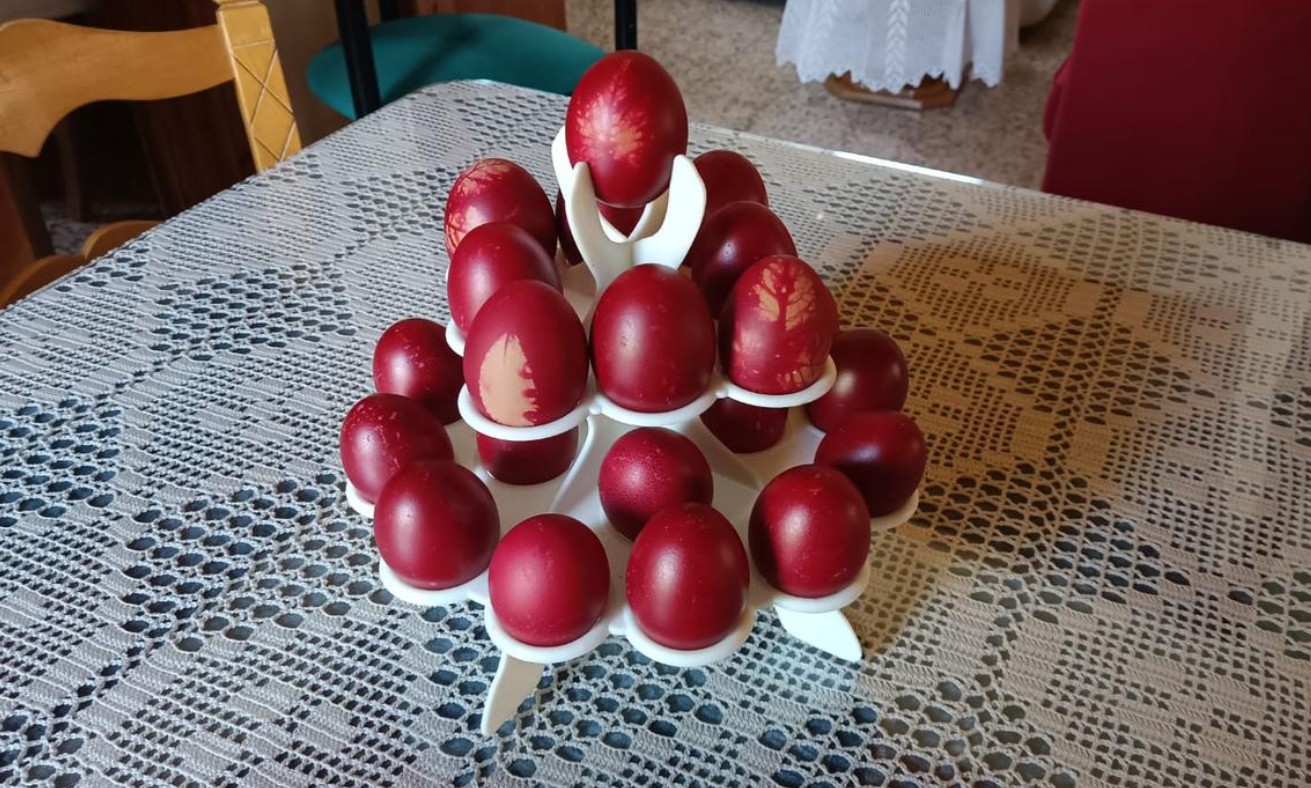 Tembria (photo credit: Andrea Giorgalli)
Tembria (photo credit: Andrea Giorgalli)
This communal spirit, filled with games, days of preparation, kitchens working non-stop, and streets slowing to a festive rhythm, is most vivid in rural areas like Lefkara, Lofou, or Kalopanagiotis, and in the suburban towns around Nicosia, such as Dali or Lakatamia. Here, Easter retains an intensity that tends to fade in the more modern urban centers and in neighborhoods inhabited by tourists and expats. For those visiting Cyprus during this time, Easter offers a profound and often surprising experience. It’s not just about folklore but a living cultural universe deeply intertwined with the island’s history and identity. Regardless of the personal religious significance one might attach to it, for many Greek Cypriots, this celebration remains a cherished and irreplaceable cultural heritage.
 Pano Arodes, Paphos
Pano Arodes, Paphos





























